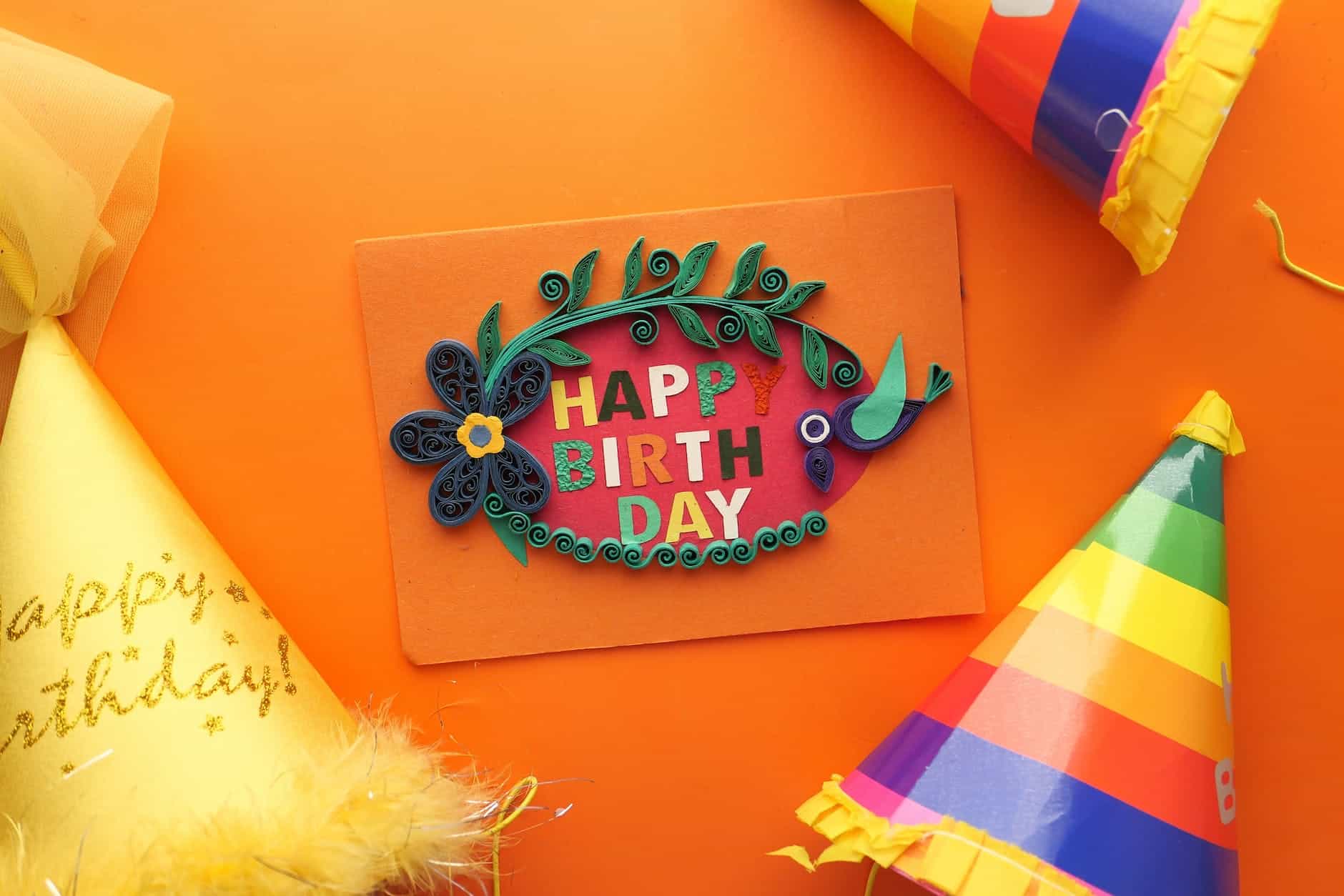Confessions of an ESL Student: The Powerful Value of a Question
Author’s memo
Vivid recollections of lessons when I was an ESL student during the first part of elementary school are slowly fleeting. Therefore, I’ve chosen to preserve these memories by exploring Mexican culture through a lens of isolation and sometimes seclusion. The convergence of identities that always seemed to coalesce and simultaneously fragment at different moments during my education in the U.S. influence this experience.
It was common for many in my generation to have been born in Mexico and raised in California. Having a firm footing in beliefs and convictions was often challenging. One’s cultural identity modifies itself with every acquired language. More so, when successful coexistence requires that language. And not only in the classroom, but the real world as well. But in the classroom, this must happen fast. To make sure it does, educators strongly recommend programs such as ESL (English as a Second Language).
Aside from the instructor giving me a pencil grip to write down the unfamiliar words I would learn on any given day, and the walkway up to the portable offices, most of what was taught is difficult to recall, yet alone attribute it to one specific memory. Still, I am certain ESL was significant to my development as a student and adult.
“Coalescing identities eventually challenge each other for dominance, regardless of the many attempts to prolong that moment.”
This period of assimilation allowed for a dual understanding of life that I continue to expand upon in my writing today. I explore the intrinsic value of writing through a specific cultural lens. And I allow code switching in my writing to accentuate sentiments, and with it, a specific frame of reference.
Coalescing identities eventually challenge each other for dominance, regardless of the many attempts to prolong that moment. Ultimately, one becomes the dominant identity. One comes to this realization when you consider the languages in which you dream, or the preferred languages of our reading lists.
In this writing, it is observable that the narrator is fond of bilingualism, sometimes thinking in English and transposing in Spanish. This is not because it is the easiest approach to communicate a thought or sentiment. Rather, I do this to share a preferred feeling that the word portrays in a particular language.
If you allow me, I can give an example of how the English and Spanish language approach sentiments. While reading Pablo Neruda’s poem Illnesses in my home, translated from its original, Enfermedades en mi casa, one line stood out. I felt the translation missed the inmost part of the message. The English verse reads:
– “and the broken window harasses the blood”
And the Spanish verse reads:
– “Y el vidrio roto hostiliza la sangre”
The Spanish translation gives importance to the instinct of the blood to be defensive and reciprocate a similar level of fierceness toward the broken window. Here, the English translation falls short by using a more practical verb, ‘harasses’ instead of ‘hostiliza’. This does not bring out the intended sentiment. Here, the broken window subdues the blood. The message gets lost in translation.
“Knowing all too well that self-censorship limits the scope of the desired message, it is better to experience temporary discomfort than to permanently omit critical cultural observations that may go unnoticed.”
Within this portrayal of sentiments, the feeling of discomfort, at times vulnerability, is something common when observing a sense of not belonging. In this writing, vulnerability sometimes shields itself with self-censorship. But eventually, knowing all too well that self-censorship limits the scope of the desired message, it is better to experience temporary discomfort than to permanently omit critical cultural observations that may go unnoticed. A necessary vulnerability to ease into one’s desired state of mind.
One significant difference between writing in English in place of Spanish, is the preference to allude to dreams. English being more analytical, straightforward, and dare I say, timely. Whereas Spanish is an oddity of feeling combinations mimicking a sincere and desired intent. That is not to say that this type of oddity is absent when writing in English. It’s simply a factor that resulted from my assimilation into the English language whereas most of my learned sentiments developed through the use and understanding of the Spanish language. Nonetheless, in recent years I’ve preferred English as my medium in creative writing.

Confessions of an ESL Student
“What do you want to know?” asked the doorkeeper,
“you are insatiable”
-Franz Kafka
It’s been some time since I’ve uttered true laughter. Most of the time a discrete and suffocating inner pant would be more than enough to make me believe I’d not yet forgotten. Compelled, I ask, how did I arrive here?
As children, we ask ourselves questions that seemingly formulate from thin air. Moreover, verbalizing those thought up, sometimes tough, questions to the trusting adults of our lifetime naturally followed. Of all the questions asked, I recall one, for which most of my preadolescence onward lingered freely like thistle seeds that once filled the hills of a distant (often revisited) dream. If memory serves, this was it:
– ‘How did we get our last name?’
A simple question? If answered correctly (with all complexities aside) it holds the power to shape the perception of a child’s world outlook.
There I sat, with three other students. Our desks were across from each other, two by two. There was a strong feeling of familiarity among this audience of peers. I was eight when I asked my 2nd grade teacher about the acquisition of my last name. I realize now, I had asked about the ‘how’ of the matter. As far as things go, it’s not too odd that an ESL Student would be unaware of the investigative powers of who, what, when, where why. Had I been aware of these powerful words, I’d probably rephrase my question. But that would have led to a different outcome, a different me.
“Of all the questions an eight-year-old ESL student could ask, an age when honesty was held to a pedestal-like standard, it would pertain to identity.”
Of all the questions an eight-year-old ESL student could ask, an age when honesty was held to a pedestal-like standard, it would pertain to identity. It often is for children at the margins of normalcy. Children from a different, yet not so unlike, background.
Today the answer to, ‘how did we get our last name?’, remains:
– ‘those first blows that forever shape us.’
– ‘esos primeros golpes que te marcan para siempre,’
a poetic sentiment by Julio Cortázar during his interview on the Spanish television program A fondo, over fifty years ago.
Privileged are those who allow the past to enlighten their present, unbound from the fear which that moment may prompt. A time from the past so recluse it can independently opt to be forgotten if stowed away.
I forgot I was a child who was often called out of his primary school classroom to receive specific education by an ESL instructor. I admire this instructor whose name I will probably never remember. He was probably an English major, with an interest in creative writing, or so I like to imagine. He did his best with tools the education system provided while I pored over that morning’s assignments: word tracing, verbal competency exercises, a quiet room purposed for concentration, and a smooth multi-grooved rubber grip for a pencil that was to be sharpened, almost exclusively, with a wall-mounted sharpener.
“Privileged are those who allow the past to enlighten their present, unbound from the fear which that moment may prompt.”
This was a time when encyclopedias occupied the space on a shelf where a Wi-Fi router sits today. Formerly, both items shared the space on the shelf, and in the blink of an eye, one had to be replaced for the sake of progress. Sometimes, the world holds onto memories. Decades later, children at Wilson Elementary still swing on the same wrought iron swing set I remember. I notice it when I drive through my hometown.
Today I walk a similar path to that of my ESL instructor. I hope that I too can help students that need bridging course work to better understand the English language. And with a modest amount of creative writing training at my side, I too would like to help. I am available to answer culture-specific questions, with culture-specific answers.
In the second grade, I did not make it clear that I had already possessed the knowledge that my parent’s surname would be given to me at birth. Was it my responsibility to heed warning prior to asking? Something along the lines of,
– ‘Okay, is everyone ready? Can you hear me, truly hear me? I now would like to acknowledge a concern that may give context to who I am.’
Obviously, I abstained from that bold statement. But from what I understand today, I wish I had said it. Perhaps in the least confrontational manner. Nonetheless, I wish I’d said something.
As Cortázar once said in the same interview, half a century ago:
– “I realized that everything was relative, that everything was precarious, that we lived in a world that is not one of total confidence and innocence.”
– “Descubrí que todo era relativo, que todo era precario, que había que vivir en un mundo que no era ese mundo de total confianza y de inocencia.”
Of course, I don’t place blame on the lacking answer which left more questions tumbling through time than I’d wish were remembered as resolved. Still, a higher answer/question ratio would have been preferred. A true jump-start to early education.
“I could sense I made an impression by the way Delinda replied when I admittedly said I’d forgotten I once was an ESL student.
– ‘How does one forget,’ she asked.
– ‘In a busy world like ours I guess you just do,’ I answered.”
Earlier this year, I had a wonderful conversation with Delinda precisely about the classroom setting and challenges in upholding reciprocal communication with ESL students. There we sat, again, two by two with our significant other. Only this time with a glass of red wine at our side and more descriptor words in our vocabulary to explore and explain our experiences in education comfortably, patiently. Surprisingly, we got through the small talk phase rather quickly, as is expected from genuine conversations. Delinda recalled a time in her classroom when she had to communicate with a new student that only knew Spanish. By the end of the school year, they’d both learned more about each other’s preferred language and a deeper understanding that is often found beyond the limits of words and our understanding of them.
The conversation continued; I could sense I made an impression by the way Delinda replied when I admittedly said I’d forgotten I once was an ESL student.
– ‘How does one forget,’ she asked.
– ‘In a busy world like ours I guess you just do,’ I answered.
– ‘Still,’ she added.
– ‘I didn’t necessarily forget. It was more of construed response, if that makes sense. It has more to do with how long ago my education began and how fast one assimilates to the English Language community,’ I said.
Today, as a substitute teacher, I realize that ESL students continue to have similar educational needs as I once had. That is, guidance and instruction from someone who understands their cultural upbringing and —when required— the willingness to approach questions from a cultural standpoint; in turn, allowing for a more concise exchange of ideas. Perhaps complex answers are beneficial to the students’ academic development. They lead them to make their own conclusions from the provided cultural information.
Delinda, with optimism, said my experience as well as my education would help me better understand the communication needs of today’s ESL students. She pointed out that there will be an affinity between ESL students and myself that will allow for a deeper understanding of the questions and answers being sought. Culture, and the study of it at my junior college and university, should allow me to answer questions at a higher tier. I hope.
“Some classmates I recall more than others. By now they’ve surely mastered English communication, and probably still use Spanish for identity’s sake. Every time we use Spanish it is a tribute to the earlier version of ourselves. The version we seek to again resemble.”
I’m not sure when the acronym ESL began to lose popularity. Most say its meaning was less accurate than the now preferred acronyms: English Language Acquisition (ELA), among others. Where I live, it is now referred to as English Learner Services. To me, and perhaps others within my age group, it brings comfort recalling it as ESL. This is by no means due to stubbornness or a clinging desire to the past, but because it was part of our first memories as students. I’m sure the new acronyms and programs will suit the current students (a new approach for a new generation) and I’m more than okay with that. Today’s English Learner Services is revised from a past curriculum that served its purpose to me and others.
Sometime in 1996, when a desk was as familiar as my home, the response to my question arrived at my ears:
– ‘You received your last name from your parents,’ said my 2nd grade teacher.
That was not the answer I had expected to hear. Naturally, it continued to linger as a memorable vestige of who, one day, I may be.
Here, on this page, I attempt to explore and clarify that instance and what followed. Somehow, I worded the question incorrectly. I was shy, unaware of the subtly of conversation, always with natural blush-tone cheeks. I didn’t know the act of bravery stemmed from our sense of morality both abstract and unreal for children who’ve not besmirched their moral principles. There was no way I would restate my question to my teacher and the select audience of my peers who passively (may or may not have) found curiosity in the question. Perhaps I would have restated the question if someone had shown me a depiction of a public speech in Athenian democracy Before the Common Era. Not finding enticement, I kept the concern to myself.
There were other ESL students in my school, I’m sure of it. There were many in this generation. Some classmates I recall more than others, often by their intonation and the way they kept a conversation interesting. By now they’ve surely mastered English communication, and probably still use Spanish for identity’s sake. Every time we use Spanish it is a tribute to the earlier version of ourselves. The version we seek to again resemble.
What was imperative to me was merely of tepid interest to my teacher. No one told me I had to be assertive at such an early age.
What I had truly intended to ask with my limited vocabulary was simple, or so I made myself believe that every question is deserving of a perfect answer. But every seashell does not house a pearl, so I kept searching for difficult to come by answers. I’ll admit, it is not an easy task, some may say it is unnecessary to live with the expectation of perfect answers. But I find that life gives you a silver lining when seeking the perfect answers. That is, questions become as fulfilling as the answers.
“One important piece of information that helped me better understand the origin of my last name derived from happenings more than five-hundred years ago.
A time and place when societies claimed to discover America.
A time and place when gods looked down at kings.”
Frankly, I have no complaints on how my 2nd grade teacher answered my question. This was the necessary nudge to seek answers on my own. Perhaps this is why I practiced journalism years later. Perhaps it’s the reason for my career preferences. Still, how would it have been if she had said this:
– ‘Well, if your parents are from Mexico than their last name probably originated from Spain. Ask them later today when you are home. They should be able to tell you.’
I must admit I would not have known what Spain was let alone translate it into Spanish for my parents. Regardless, I would have asked my mom. I’d also ask my dad if he was home from work and well-rested.
– ‘Mom, Dad, who gave us our last names?’
– ‘Ama, Apa, ¿quién nos dio nuestros apellidos?’
Today, I wish my younger self knew that information. Just as I know (from recent acquired knowledge) that most early Spanish colonizers to reach America originated from the Canary Islands. Realistically, my parents would not have known the answer to my question either. Even so, I still would have liked the opportunity to ask, and the consequential heartache to yet another unanswered question would be warranted.
In Mexico, my mother abandoned school during her formative elementary years, she was the eldest daughter, and my dad almost completed high school. Life had other plans for them: to be parents in a different country.
Even if my parents were not capable of providing an answer, maybe… just maybe, the question itself could have been the impetus which would allow me to become more interpersonal with them. To learn the questions they had asked the trusting adults of their generation, before life created an everlasting bond between us. Surely, they too felt the blows that shape our lives.
The weight upon my shoulders by the unresolved question would have to wait a decade and some change for answers. I asked that elusive question before I was intended to ask. Intrigue arrived, but it wasn’t my time to hold it, like the beachgoers in Jeanie Greensfelder’s poem Taking Turns. I’m ready now.
What was important for eight-year-old students?
Arithmetic and U.S. History
Why?
It dominated the curriculum.
What was not so important?
World History and Ethnic Studies
Why?
You will study it later.
And as the list of unanswered questions grew longer, the resources needed were often out of reach. Although we all find importance in the balance of a scale (and all things relevant) when it comes down to it, we ultimately would choose the fuller, more complete of the two. I intend to keep the scales balanced for as long as possible, for the sake of modernity.
***
One important piece of information that helped me better understand the origin of my last name derived from happenings more than five-hundred years ago.
A time and place when societies claimed to discover America.
A time and place when gods looked down at kings.
Credits
Illustration of child studying by Muhammad Usama from Pixabay
Learn More
New to autoethnography? Visit What Is Autoethnography? How Can I Learn More? to learn about autoethnographic writing and expressive arts. Interested in contributing? Then view our editorial board’s What Do Editors Look for When Reviewing Evocative Autoethnographic Work? Accordingly, check out our Submissions page. View Our Team in order to learn about our editorial board. Please see our Work with Us page to learn about volunteering at The AutoEthnographer. Visit Scholarships to learn about our annual student scholarship competition.
Francisco J. De León Alonso is a bilingual writer from Fresno, CA. and is fond of contemporary classical music. He earned his B.A. in Spanish and Chicano Studies at Fresno State where he wrote for the University’s newspaper, as a reporter for the first bilingual edition. Currently, he is working as an RSP Substitute Teacher. His poems have been published locally in CWAA’s Flies, Cockroaches and Poets Journal, The Fresno City College Review, and most recently in Notes. For more information visit his Instagram page @ovanityofsleep.









